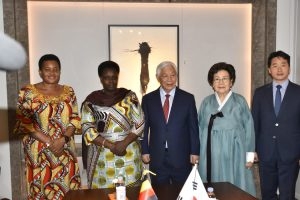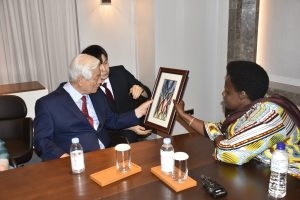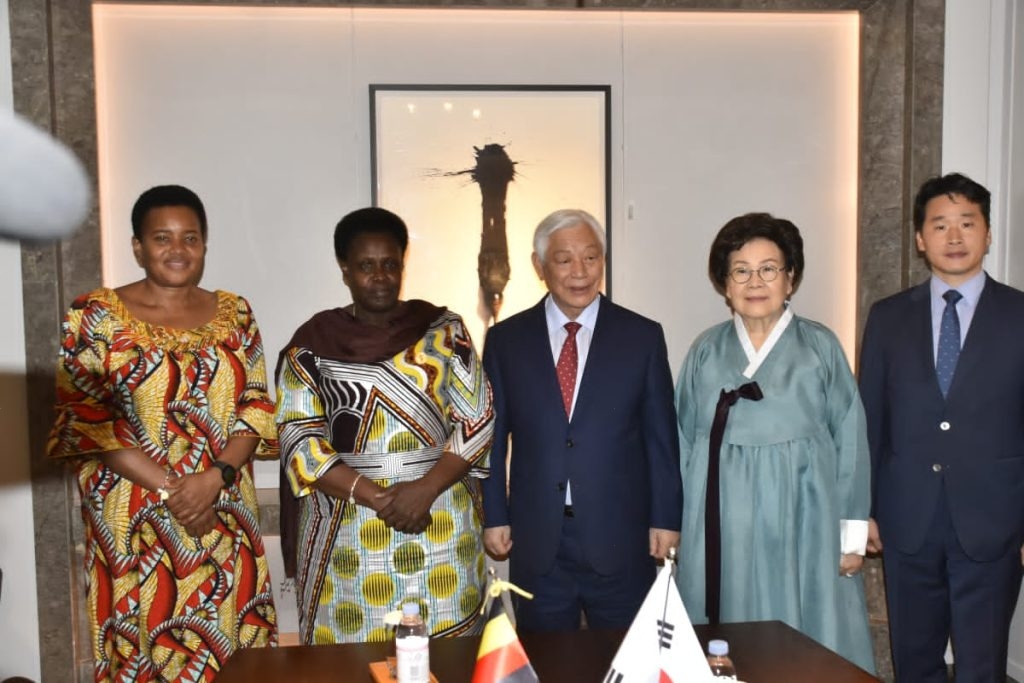By Richard Onapatum
KOREA-AFRICA SUMMIT:During her working visit to the Republic of South Korea, Vice President Maj. (Rtd) Jessica Alupo met with Rev. Dr. Oct Soo Park to discuss the National Mindset Education Program in Uganda and the establishment of a Mindset Development Centre in Uganda.

Over the years, South Korea has invested significantly in mindset change programs, which have been pivotal in transforming the country into a robust economy. These initiatives gained prominence in the 1970s as a part of South Korea’s National Development Plan.
Vice President Alupo welcomed the idea, emphasizing that mindset change is a critical pillar in enhancing the Parish Development Model. “Mindset change is one of the pillars enhancing the Parish Development Model,” she stated. This government strategy focuses on organizing and delivering public and private sector interventions for wealth creation and employment generation at the parish level, the lowest economic planning unit.
Dr. Park highlighted the benefits of mindset change, noting that it has empowered South Korean citizens to make informed decisions. “It has led to better connectivity, a healthier society, and the formation of a strong community spirit,” he said. Dr. Park stressed that fostering the right mindset among youth can drive growth and development by creating a strong labor force for increased production. “Having the right mindset among the youth can lead to growth and development because they provide a strong labor force for increased production,” he emphasized.

In a gesture of symbolic cultural diplomacy, Vice President Alupo presented Rev. Dr. Park with a signed, matted, and framed print of an original batik by Owek. Nuwa Wamala Nnyanzi from 2010. The artwork depicted the grandeur and magnificence of Uganda’s long-horned Ankole cattle, a symbol of wealth, health, and status in Ugandan culture.
The Ankole cattle, with their distinctive long horns, are a celebrated part of Uganda’s cultural and natural heritage. Their horns, often mistaken for elephant tusks or ivory, contribute to Uganda’s reputation as the Pearl of Africa. This exhibition of cultural heritage underscores the deep connections between economic development and cultural pride.


